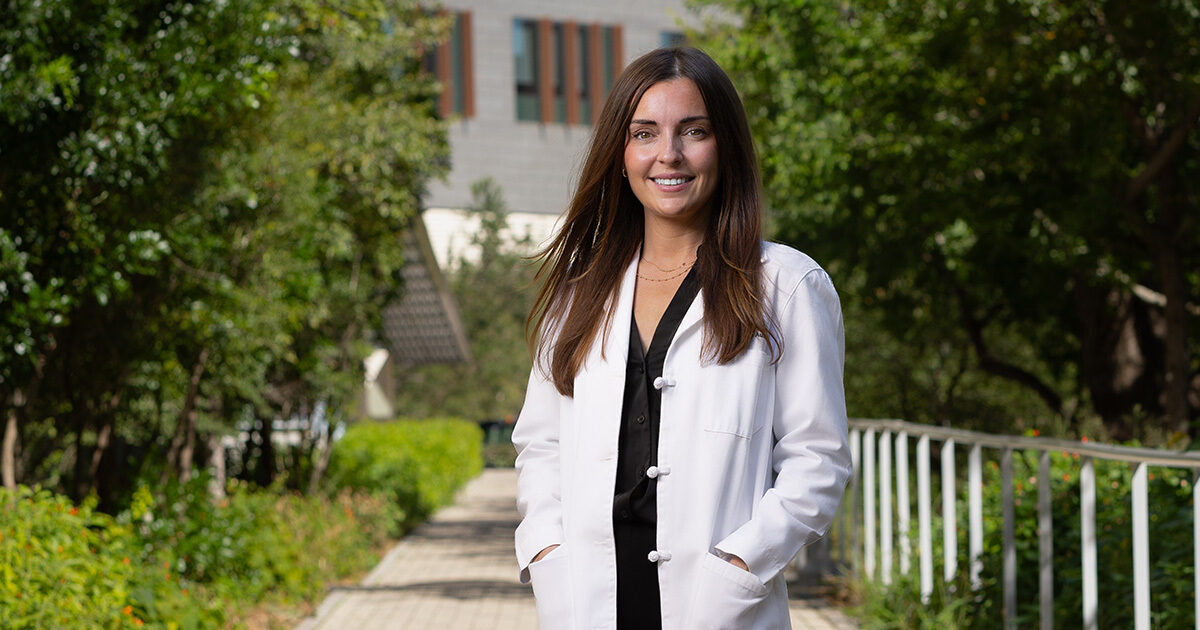Leading the way in esophageal and foregut surgery
At UT Health Austin, deep specialization meets comprehensive care to deliver relief for complex digestive disorders.
Reviewed by: Elisa Furay, M.D., FACS; F. P. “Tripp” Buckley III, M.D., FACS
Written by: Lily Vining

For patients living with conditions like gastroesophageal reflux disease (GERD), achalasia, hiatal hernias or esophageal cancer, getting the right diagnosis and treatment can be a long, frustrating process. Symptoms are often misunderstood. Referrals are delayed. And for more serious conditions, care can feel scattered or incomplete.
The Texas Center for Esophageal and Foregut Surgery within UT Health Austin’s General and Gastrointestinal Surgery Clinic is designed to change that.
“These are conditions that require more than just a procedure,” says Elisa Furay, M.D., FACS, a board-certified general surgeon with advanced training in foregut care. “They require expertise, as well as diagnostics, long-term follow-up and a team that truly understands the disease process.”
A rare level of specialization
The esophagus is located in one of the more anatomically complex regions of the body, positioned near the heart, lungs, and major blood vessels. Operating in this area demands a high level of precision and training. Across the country, few surgeons have the experience or specialization to do it routinely.
At UT Health Austin, though, it’s the sole focus of the clinic’s two-surgeon team. Together, Dr. Furay and F. P. “Tripp” Buckley III, M.D., FACS, a board-certified general surgeon and leader in the field, have performed more than 1,500 advanced procedures in recent years, making the center one of the highest-volume programs of its kind in the U.S.
“It’s the repetition that makes us better,” says Dr. Furay. “Because we focus exclusively on foregut conditions, we see these cases every day. That kind of volume sharpens your instincts and improves outcomes.”
Dr. Buckley’s own experience with GERD and Barrett’s esophagus led him to undergo the same surgical procedures he now performs — a personal journey that continues to inform his approach.
“I know how scary surgery can be,” he explains. “But because I’ve gone through it myself, I can guide patients through the process with empathy and firsthand knowledge. That kind of understanding, combined with the experience of our full team, really helps make the entire process smoother from start to finish.”
Whole-picture care, all in one place
What truly sets the clinic apart is its integrated model of care. Patients have access to advanced imaging, diagnostic testing, endoscopy and clinical consultations all under one roof. From evaluation through recovery, care is collaborative and continuous.
The result? Deeply personalized care. Many patients don’t need surgery, and the clinic focuses equally on medical therapy, nutrition and lifestyle changes to improve quality of life.
“We build care around what matters most to the patient,” Dr. Furay explains. “Because we have the tools and coordination to do that effectively, we can often help people feel better faster, with fewer unnecessary steps.”
Academic medicine in action
That commitment to delivering the right care efficiently and compassionately is strengthened by the clinic’s academic foundation. As part of the budding University of Texas Medical Center, the Texas Center for Esophageal and Foregut Surgery doesn’t just treat patients, it helps shape the future of care.
Dr. Furay is an assistant professor, and Dr. Buckley is an associate professor and chief of the Division of Elective Surgery in the Dell Medical School Department of Surgery and Perioperative Care. Their long-standing partnership began during Dr. Furay’s residency training under Dr. Buckley, which inspired her to pursue advanced fellowship training in foregut surgery. Today, they work side by side in clinic and in the operating room, and together, they’re helping train the next generation of surgeons to meet a growing national need.
“While clinical excellence is our foundation, we also feel a deep responsibility to train our residents and medical students,” says Dr. Buckley. “Our service provides 80% of advanced laparoscopic and endoscopic training at Dell Med. Beyond technical skills, we focus on passing along the knowledge and nuance required to treat GERD and other foregut diseases — conditions that are common, yet still widely misunderstood.”
The clinic is actively involved in clinical trials and innovation efforts aimed at improving outcomes and expanding treatment options, particularly for patients with complex or reoperative needs. Their research includes the development and evaluation of new devices, with a strong emphasis on understanding what matters most to patients.
“We’re constantly looking for ways to improve outcomes that impact real quality of life,” says Dr. Furay. “That’s what drives the research and trials we take part in, not just what works technically, but what works best for the patient.”
From early-stage reflux to the most advanced surgical cases, the Texas Center for Esophageal and Foregut Surgery is redefining what person-centered, academic care can look like, right here in Central Texas.
For more information about the Texas Center for Esophageal and Foregut Surgery or to request an appointment, call 1-512-495-GERD (1-512-495-4373) or visit here.